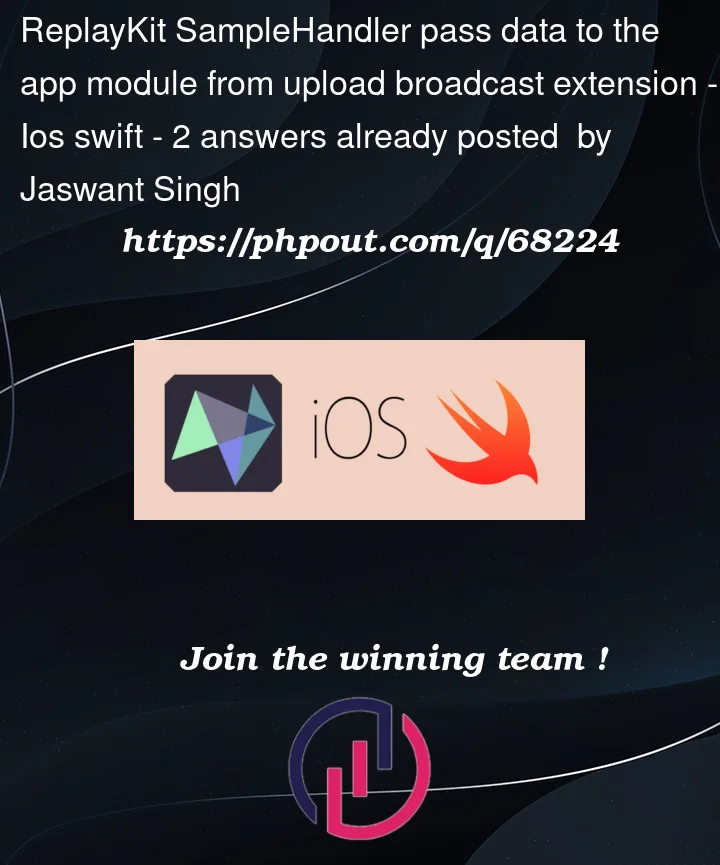I’ve created an Upload Broadcast Extension to capture screen recording and my main app uses native webrtc for audio/video calls.
I’m successfully able to receive frames inside the SampleHandler class. My question is how to pass the data from this SampleHandler to my main app so that I can utilise these frames?
I tried a dependency known as Wormhole to pass the data but it’s not passing any data and also it only supports the passing of strings so it’ll useless for me.




2
Answers
Finally I get to know that it's not possible. We can share data like strings using UserDefaults by creating app groups but that's not what I want to do here. I need to share CMSampleBuffer so this is out of the question. The Extension and the host app run on separate sandbox environments and sharing data between two wont be feasible.
What we can do is writing the complete video call logic inside the extension itself. All the relevant code that will be responsible to send these frames to the server to a particular room (Room name and other details can be shared using UserDefaults) and stream from the extension itself, which I believe is a long road. Or write a common code for streaming that'll be utilised by the host app and the extension (Again, data between these two wont be possible, both will create a different instance for the file).
Sometimes enforcing security can be painful for devs!
Use the
processSampleBuffer()functionGood luck!